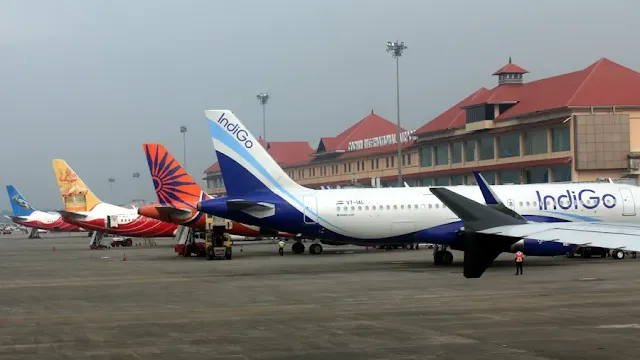Airport Arrival Times in India: When is Too Early?
Ah, the age-old traveler's question: "How early is too early to arrive at the airport?" If you're jet-setting across or out of India, this conundrum takes on even more significance. With its bustling terminals and vibrant atmosphere, Indian airports are a world of their own. But fear not, intrepid travelers! I'm here to guide you through the ins and outs of airport arrival times in India, ensuring you strike the perfect balance between too early and just right.
Can I Enter the Airport 6 Hours Before My Flight in India?
Yes, you most certainly can, especially if you're embarking on an international journey. For domestic flights, the standard rule of thumb allows you to check in 2 to 3 hours ahead of your departure. However, if you're transitioning from an international to a domestic flight, as one might in the sprawling Indira Gandhi International Airport in Delhi, or Mumbai Airport, arriving 6 hours before your domestic leg is not just acceptable—it's smart planning.
Is 5 Hours Too Early for an Airport Arrival?
Not at all! Arriving 5 hours early can be a wise decision, particularly for international flights. This window provides ample time to navigate through check-in, security checks, and the occasionally lengthy immigration procedures, with a healthy buffer for the unexpected. Moreover, it grants you a leisurely pace to explore the airport's amenities, from lounges to shopping centers.
The 7-Hour Question: Can You Go to the Airport This Early?
While less common, arriving 7 hours before your flight is certainly possible and can be advantageous under specific circumstances. This is particularly relevant if you're dealing with long layovers or have personal reasons necessitating early arrival. Most Indian airports will accommodate you, but it's always a good idea to confirm with your airline, as policies may vary.
Navigating Indian Airports: A Few Tips
- Check Airline Policies: Before packing your bags and heading to the airport, a quick check of your airline's check-in and boarding policies is crucial. While general guidelines exist, airlines have the final say.
- Consider Lounge Access: For those lengthy waits, consider investing in lounge access. Many Indian airports offer comfortable lounges where you can relax, eat, or catch up on work.
- Stay Informed on Facilities: Larger airports like Delhi and Mumbai boast a plethora of facilities to make your wait more enjoyable, including showers, sleeping pods, and a wide variety of dining options.
- Safety First: Especially in today's world, arriving early may also mean accounting for additional health and safety checks at the airport. Ensure you're up to date on any travel advisories or requirements.
The essence of travel in India, with its rich tapestry of culture and bustling airports, is to expect the unexpected. Arriving early, be it 5, 6, or even 7 hours before your flight, isn't just about adhering to timeframes—it's about embracing the journey, ensuring peace of mind, and maybe even discovering a new favorite airport nook. So, pack your patience along with your passport, and embark on your journey with confidence. Safe travels, and may your airport experience be as smooth as the skies you're about to soar through!









